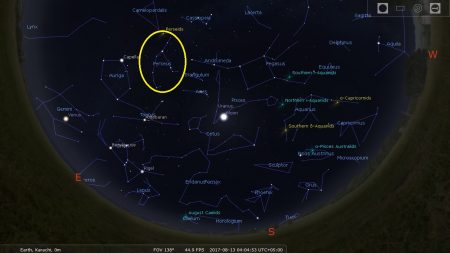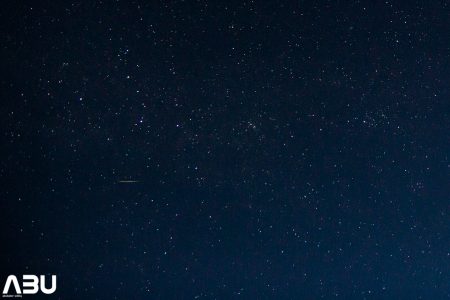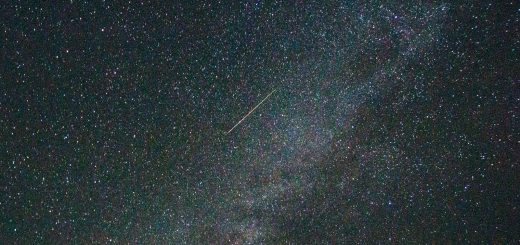Perseids meteor shower 2017 from Pakistan
Perseids Meteor Shower – There has been lot of news floating on the world wide web since a month now that this will be the brightest meteor shower recorded in human history. Many people are being fooled by that misleading news which is really sad. Perseid meteor shower is one of the best meteor showers of the year (NOT THE BEST) having meteor rate of about 80 meteors/hour. 80 meteors doesn’t mean it will be 80. It can be more or less. This shower peaks on the evenings of Aug. 11-13, according to NASA. That means you can witness a Perseid anytime in August not only 11th, 12th or 13th of August. By the way, Geminids is the best shower of the year. Why? Read it here.
First you need to know what is Perseid meteor shower and what is meteor shower. Read it here, if you don’t know what is Perseid meteor shower. I witnessed Perseids shower in 2016 after traveling about 250Kms into the mountains of Bela, Balochistan. Here is a shot that was also featured in Dawn News.
How do I observe Perseids 2017?
Meteors can appear randomly in any part of the sky! But for meteor showers such as Perseids look near the constellation of Perseus.
If a meteor shower is in progress it usually helps to look about 45 degrees either side of the radiant and about 30 degrees up. Looking straight at the radiant means you will see meteors head on and with very short trails, looking to one side of the radiant gives a reasonable length of trails but is still close enough to catch the majority of meteors. Looking about 30 degrees up means you are looking through a larger volume of air than when looking overhead, which should catch more meteors, but is still high enough to be above the haze.
Is it really the best meteor shower to be recorded in Human history?
There are posts being shared on Facebook and other social media that this year Perseids will be the best. Let’s analyze
- It hasn’t happened yet, so no one can claim that it will be best
- The meteor shower rate varies each year
- The meteor shower rate varies depending on the location you’re at on the Earth, sky conditions including clouds, transparency and light pollution
Now if you use common sense, you should get the first point yourself even before reading this article. By learning about Astronomy, you will know the 2nd and 3rd point but since you’re beginner or learning or a layman (that’s why you’re here reading it 🙂 ), you can easily be fooled by some social media news and blogs sources.
Is is visible from Pakistan?
Yes. It is visible from Pakistan and in fact all over the world.
Can I see it?
Yes. We can see it, provided we have clear skies
By clear I mean:
- No Light Pollution (This isn’t a problem in areas where we have no electricity for 100 Kms or more )
- No Clouds
- Good to excellent Transparency
Here is an ideal condition for observing Moon without clouds, with all above 3 conditions met. 🙂 Unfortunately, this doesn’t hold true for this year.
Yes. Moon will be hindrance even if you find clear skies
This year, on the peak of Perseids that is 12th August, we will have a Waning Gibbous Moon lighting up most of the Sky starting at 22:00 hrs (10 PM ). By this time, the constellation of Perseus won’t be visible in the Sky so very less change of a Perseid being seen. The Perseus will rise after mid night and by that time Moon will be at a greater altitude thereby shinning brightly polluting the sky with light.
Clouds Clouds everywhere
In fact, there is a chance of rain in Karachi and most areas of Pakistan during 11 – 16 August with cloudy skies.
You can read about my experience of Perseids 2016 here and Geminids meteor shower here. You can stay connected by following me on my Facebook page. If you want to learn more, contact me on me@abubakershekhani.com.
What do I do?
You should head out of your city into dark location if you have opportunity and try your luck. 🙂
Bonus:
Before you leave.
It was cloudy in Karachi on 7/8 August while we were having a Partial Lunar Eclipse, but luckily I got opportunity to witness it. You can read about my experience and watch photos here.
Good luck watching Perseids Meteor Shower of 2017.










